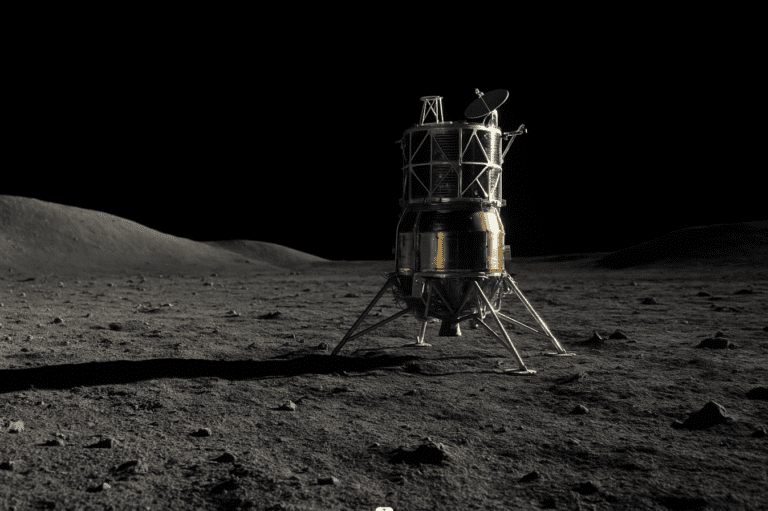On February 22, 2024, Intuitive Machines, a pioneering American aerospace company, achieved a groundbreaking feat by successfully landing its Nova-C lander on the lunar surface. This historic event marked the first time a commercial spacecraft performed a soft landing on the Moon, representing a major step forward in the privatization and commercialization of space exploration. The mission was conducted under NASA’s Commercial Lunar Payload Services (CLPS) program, which encourages private sector participation in lunar research and exploration.
Advancing Lunar Science and Resource Discovery
The Nova-C lander carried a sophisticated array of scientific instruments aimed at analyzing the Moon’s surface composition and searching for critical resources like water ice. Discovering water ice is of particular importance, as it can provide drinking water, oxygen, and even rocket fuel, thereby supporting sustained human presence on the Moon. These scientific investigations lay the foundation for future missions focused on establishing sustainable exploration bases and potentially colonizing the lunar environment.
Private Sector Innovation Driving Space Exploration
Intuitive Machines’ successful landing underscores the expanding role of private companies in the space industry. Their achievement demonstrates how private innovation is complementing the work of traditional government space agencies such as NASA. The success of Nova-C signals a new era where public-private partnerships will accelerate technological development and broaden the scope of space exploration, opening avenues for both scientific and commercial progress.
Paving the Way for Human Lunar Missions
Experts view this accomplishment as a critical stepping stone toward future crewed missions to the Moon. The mission highlights how private enterprises can lead in developing the technologies necessary for sustained lunar exploration and resource extraction. Through continued collaboration with NASA and other space agencies, private companies like Intuitive Machines are poised to help humanity extend its reach beyond Earth, advancing ambitions of long-term lunar habitation.
A New Dawn in Space Exploration
The Nova-C lander’s successful touchdown symbolizes a transformative moment in humanity’s quest to explore space. This mission not only expands scientific knowledge but also catalyzes future innovations that may revolutionize how space exploration is conducted. As efforts continue to establish a permanent human presence on the Moon, achievements like this will play a vital role in shaping the future of space travel for decades to come.


